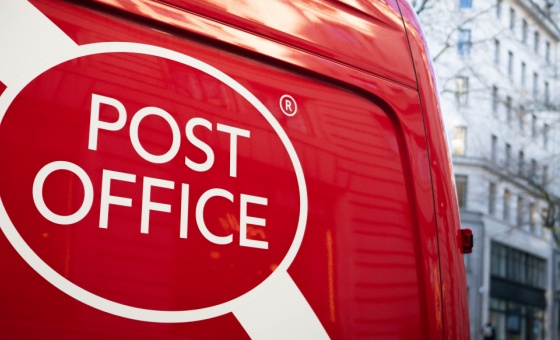This is the last article you can read this month
You can read more article this month
You can read more articles this month
Sorry your limit is up for this month
Reset on:
Please help support the Morning Star by subscribing here
THE GMB union has been campaigning throughout Yorkshire to try to make some headway in addressing our homecare crisis — a crisis that existed way before Covid-19-19.
For years we have fought to get a fair deal for all of our social-care members, and most trade-union activity has, quite rightly, been focused on the mass outsourcing and closure of residential care homes.
We have to go back some years, though, to understand why the drive to close or offload our social care was so aggressively driven by successive governments, who passed the baton down to local authorities.
It is no surprise that the policy is financially and austerity driven, but the tool to achieve it was wrapped up in “personalised care packages.”
Families were given their own budgets by local authorities and the “genius idea” was that they would then go out and source their own care packages, even employ their own careworkers, and take that responsibility away from local authorities.
This would then drive down the demand for residential care and help to build a new domiciliary care model — delivering care to enable someone to stay at home.
It hasn’t worked like that, of course, and the vast majority of people receiving the care packages simply pass the baton back to the council and ask them to source and provide the care.
The councils in turn commission that care through a list of “preferred providers” who have to bid to deliver the work.
The word “bid” has to be taken loosely here, because the providers can’t name a price — that is set by the councils themselves and the “bid” is purely about the provider’s ability to deliver, the “how” many hours and “how” well? etc.
There are over half a million careworkers delivering home care in Britain through this commissioning process now. In Yorkshire alone there are literally hundreds of, usually, small companies on our councils’ preferred delivery lists employing them.
The UK Home Care Association (UKHCA) is an independent not-for-profit and impartial body which carries out national research that looks at the real cost of delivering care in this way. Its body of expertise is often used by councils and the government when they carry out their own research and are developing care policy and strategy.
The UKHCA has calculated the minimum hourly rate that should be going to providers for homecare and in April 2020 that is £20.69 per hour.
No council anywhere has ever paid that, and this rate only includes the government’s minimum wage. The rate also includes travel, national insurance and pension costs, mileage and other wage and business on-costs and allows for a 60p profit margin.
As we stand now councils are paying an average of £17.50.
It’s worse than that though. Some local authorities such as Wakefield even go as far as to include in their commissioning guidance that providers should include a reduced minimum wage forecast due to the fact that a percentage of their workers will be under 24, the statutory age to reach the full government living wage.
When the work is eventually commissioned, most councils stop paying when a resident has to go into hospital; so a carer can have the promise of 40 hours of care work one week, only to see a couple of their clients having to go into hospital and their hours reduced immediately to 20 or 25 hours.
That automatic drop is built into the commissioning process, so the employer has no choice or flexibility and the only options they see open to them to deal with these precarious hours are zero-hour contracts.
Now this prompts the question: How on Earth does any provider make a profit? Those that do manage to make a profit do so by delivering what they need to deliver, no more and no less.
Some companies don’t pay for any initial training the first week; most have to rely on carers using their own vehicles, PCs, phones; and it’s not uncommon to hear from carers having to work unpaid hours to meet their targets and complete the minimum tasks that they have been set.
Care travel is cut to the bone, along with training and development, and most carers opt out of their pension entitlement too.
Where a client’s care can be delivered before the allotted time is all taken up, they have to agree to confirm that “no further care was required.” This enables most care companies to claim the full time and move on to the next appointment, ensuring more care is provided in condensed hours.
Councils know this is happening and, even though it is not “strictly” contract compliant, they turn a blind eye.
The result is that staff turnover in homecare was running at an average of 47 per cent before the Covid-19-19 crisis, and so these care companies must constantly recruit in order to keep the care crisis at a standstill.
And, no matter what hourly wage we in the trade union movement campaign for, the sad fact is that the priority for most carers is to actually get paid for the time they are out there doing their jobs.
We have written to every council in the Yorkshire region and we have told them that we have carried out more research into the guidance that their commissioners should be adhering to when considering changes to the care sector during these difficult times.
We have a letter that they have all received from the government that confirms its financial commitment to support councils through this current crisis.
We have also been in, and continue to have, discussions with our members in the care sector and their employers, and it is clear to us that care companies are not receiving anything near what is needed to support our care system through this ever-worsening crisis.
Many report that they don’t even get the extra funding needed to cover Covid-19-compliant personal protection equipment (PPE) either, and, again, pay remains far too low and way below the councils’ own job-evaluated rate for care (£11-plus an hour).
We have told councils that their own commissioning processes fail to adhere to the government’s Ethical Framework for Adult & Social Care issued by the Department of Health & Social Care.
Most have not and will not, for example, explain to us how they intend to support the care sector when making decisions in compliance with this framework, and they rarely talk to carers or their employers.
In conclusion we have said:
· We are asking that the local authority job-evaluated pay rate is included (increased and funded fully) in the commissioning price for care
· We are asking for assurances that any careworker who must be off sick due to the virus is given full sick pay and not SSP
· We are asking that care companies who are having to source their own PPE are receiving recompense for this in full
Some councils have responded — but most have not. We know for example that Bradford has received an extra £15.76 million and has been promised a similar amount to follow in order to help with the current Covid-19 crisis.
We also know that the authority has estimated that the total financial pressures it is facing, however, equate to about £59 million — it has not given us the details behind that.
The authority has managed, out of the government Covid-19 support, to commit just £1.3m to help out with care and that extra support is only for this Covid-19 period. You can safely assume that the picture is similar throughout the region.
The crisis is deepening by the day — but it can be fixed.
There can’t be many trade unionists who don’t think care, when funded by the local authority, should be delivered by the local authority; but that has never been the case in the homecare industry I am describing here.
Not all but most of this industry has grown up through or on the back of council-commissioned care.
These carers, in the main, have never worked for the council and, until there is a massive shift in political thinking in Britain, they never will.
Today our fight must be to get the carers what they deserve now, instead of promising them cake tomorrow:
· Real pay rates for care (they deserve more than any form of minimum wage)
· A commissioning service that recognises block delivery so that no hours are unpaid (and ends zero-hour contracts)
· Full sick pay
· Fully funded training
· Fully funded travel time
· The tools they need to do their jobs (PPE, Covid-19 testing, cars, phones etc)
If we fail to make these demands now, we too fail the carers themselves. Government and councils can outsource whatever they want but they cannot outsource their responsibility.











